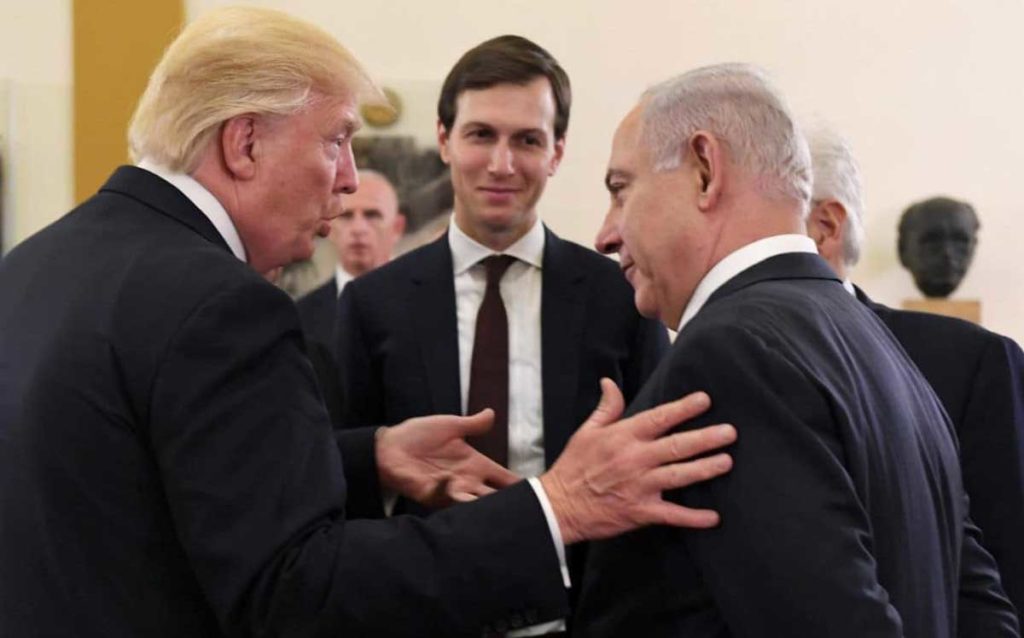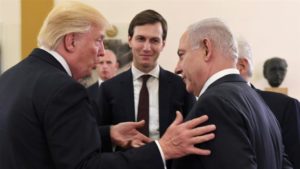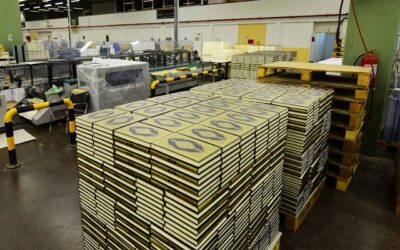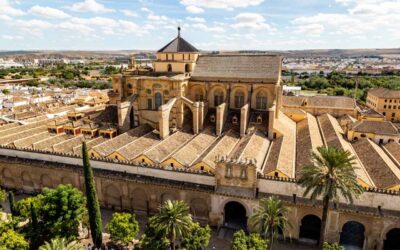The White House on Saturday outlined a $50 billion Middle East economic plan that would create a global investment fund to lift the Palestinian and neighboring Arab state economies, and fund a $5 billion transportation corridor to connect the West Bank and Gaza.
The scheme, which calls for a mix of public and private financing and intends to create at least a million new jobs for Palestinians, was posted to the White House website before a two-day conference in Bahrain.
The “peace to prosperity” plan, set to be presented by White House senior adviser Jared Kushner at an international conference in Bahrain next week, includes 179 infrastructure and business projects, according to details of the plan and interviews with U.S. officials. The approach toward reviving the moribund Israeli-Palestinian peace process was criticized by the Palestinians on Saturday.
The ambitious economic revival plan, the product of two years of work by Kushner and other aides, would take place only if a political solution to the region’s long-running problems is reached.
More than half of the $50 billion would be spent in the economically troubled Palestinian territories over 10 years while the rest would be split between Egypt, Lebanon and Jordan. Some of the projects would be in Egypt’s Sinai peninsula, where investments could benefit Palestinians living in adjacent Gaza, a crowded and impoverished coastal enclave.
The plan calls for projects worth $27.5bn in the West Bank and Gaza, and $9.1bn, $7.4bn and $6.3bn for Palestinians in Egypt, Jordan and Lebanon respectively. The projects envisioned are in the healthcare, education, power, water, high-tech, tourism and agriculture sectors.
Speaking to Reuters on Saturday, Donald Trump’s adviser and son-in-law Jared Kushner, who is behind the plan, said: “I laugh when [Palestinian leaders] attack this as the ‘deal of the century’. This is going to be the opportunity of the century if they have the courage to pursue it.”
Palestinians reject Kushner ‘economy first’ approach to Mideast peace Factbox: U.S. plan for Palestinian economy envisions $50 billion investment See more stories The Trump administration hopes that wealthy Gulf states and nations in Europe and Asia, along with private investors, would foot much of the bill, Kushner told Reuters.
Kushner said some Palestinian business executives had confirmed their participation in Bahrain, but declined to identify them. The overwhelming majority of the Palestinian business community will not attend, businessmen in the West Bank city of Ramallah told Reuters.
“Generations of Palestinians have lived under adversity and loss but the next chapter can be defined by freedom and dignity,” the White House said, calling the plan “the most ambitious international effort for the Palestinian people to date”.
Several Gulf Arab states, including Saudi Arabia, will attend. Their presence, some US officials say privately, appears intended in part to curry favor with Trump as he takes a hard line against Iran.
Kushner himself is calling the event a “workshop” instead of a conference, concerning a “vision” instead of an actual plan. He also stressed that governments will not be expected to make financial pledges on the spot.
The plan also proposes nearly a billion dollars to build up the Palestinians’ tourism sector, a seemingly impractical notion for now given the frequent flareups between Israeli forces and militants from Hamas-ruled Gaza, and the tenuous security in the occupied West Bank.
But the already tough sell is made tougher not least because Trump and his aides have refused to endorse a two-state solution to the conflict that has long been seen as the only viable path to lasting peace.
They have also suggested they are open to unilateral Israeli annexation of disputed territory. And, officials say, there is no intention of discussing the most contentious parts of their proposal to end the long-running conflict.
Thus the core political issues that are key to resolving the dispute, such as borders, the status of the holy city of Jerusalem, Israel’s security and the fate of Palestinian refugees, will not be raised.
Such matters, US officials have said, may have to wait until the fall, after Israeli elections, leaving numerous questions that potential investors almost certainly want answered before making even tentative financial commitments.











